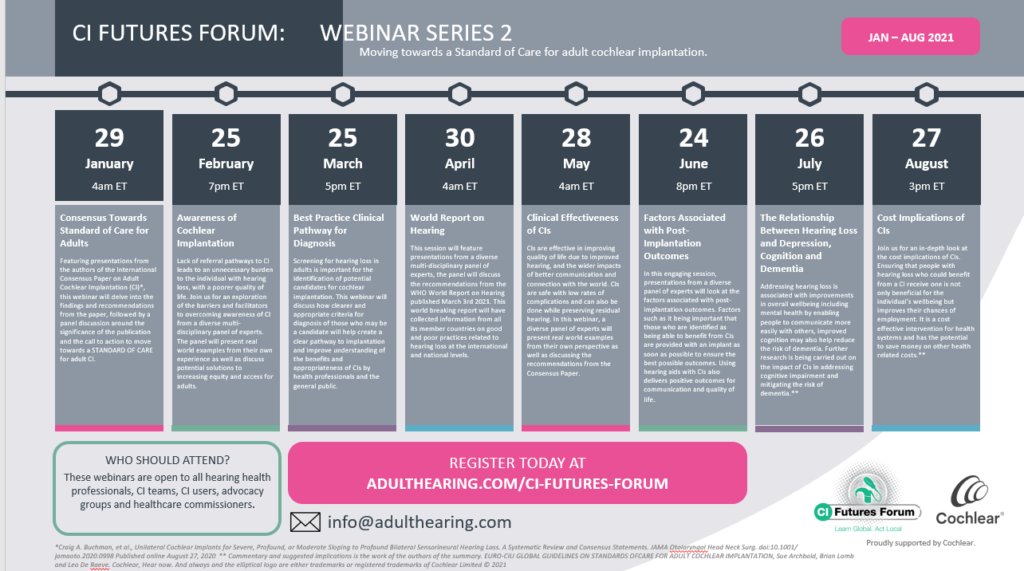Though cochlear implants (CI’s) are an effective medical treatment for many adults living with severe to profound sensorineural hearing loss, conservative estimates suggest that only 1 in 20 adults worldwide who could benefit from a cochlear implant have one.*
The world’s first international consensus on cochlear implant treatment for adults* was published in JAMA Otolaryngology. The paper was authored by 31 hearing experts assisted by cochlear implant user and professional advocacy organizations. The publication is a major step forward in clarifying when CI’s are a treatment option for adults, and a timely call to policymakers, insurance funding bodies as well as health professionals to better understand the importance of providing access to CI treatment for those who could benefit.
Beginning January 29th through August 27th, hear from a diverse multi-disciplinary panel of experts from around the world, discussing the findings and recommendations from the consensus paper, as well as the real world barriers and facilitators to access and equity for adult CI. Webinars will be presented by leading experts in the field of CI from around the world and will include the participation of patients.
Please register for all here.

Read more about the international consensus paper now!
*Craig A. Buchman, et al., Unilateral Cochlear Implants for Severe, Profound, or Moderate Sloping to Profound Bilateral Sensorineural Hearing Loss. A Systematic Review and Consensus Statements. JAMA Otolaryngol Head Neck Surg. doi:10.1001/ jamaoto.2020.0998 Published online August 27, 2020 ** Commentary and suggested implications is the work of the authors of the summary. EURO-CIU GLOBAL GUIDELINES ON STANDARDS OF CARE FOR ADULT COCHLEAR IMPLANTATION, Sue Archbold, Brian Lamb and Leo De Raeve.
Cochlear Nucleus cochlear implants are intended for use in individuals 18 years of age or older who have bilateral, pre, peri or postlinguistic sensorineural hearing impairment and obtain limited benefit from appropriate binaural hearing aids.







